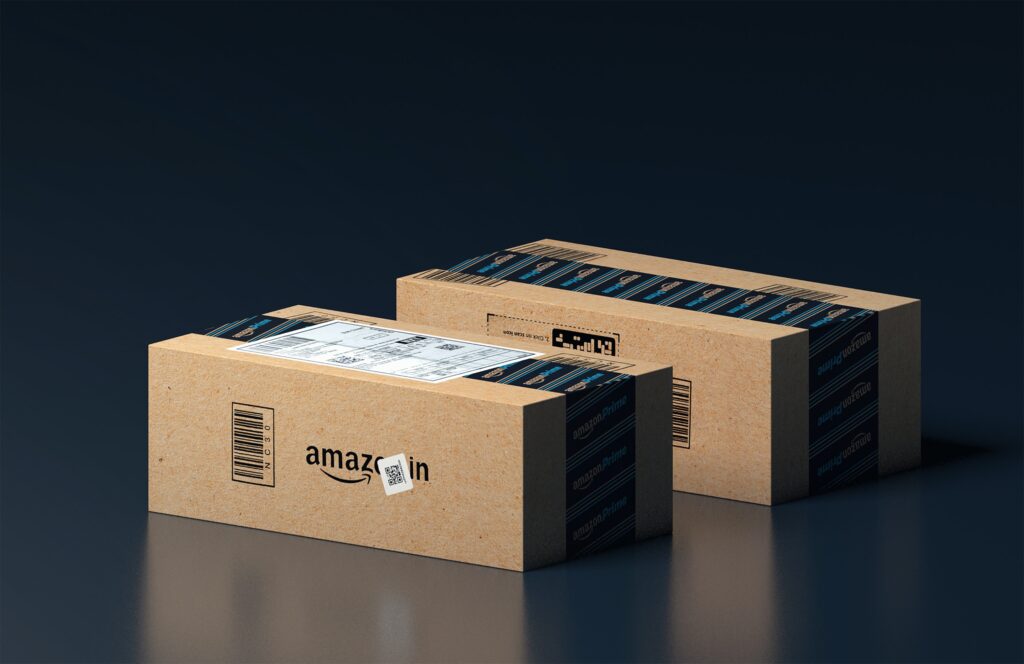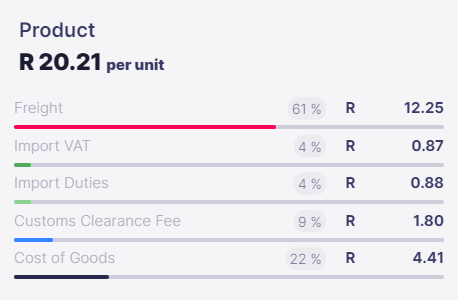
We’re in 2023, and all eyes in South Africa are still eagerly awaiting the arrival of e-commerce giant, Amazon Marketplace. Last year, word got out that it would be launched in February 2023, and they even secured warehouse space for its operations. But due to the challenging economic environment, the launch got pushed back to either the third or fourth quarter of this year.
Here, we’ll take a closer look at the potential implications of Amazon’s entry into the South African market, particularly for small local businesses.
Right now, South Africa has Takealot, which is our version of Amazon and the largest e-commerce platform in the country, raking in $827 million in revenue in 2022. But that’s nothing compared to Amazon’s earnings.
In the third quarter of 2020 alone, 58% of all items sold on Amazon came from their 2.6 billion active third-party sellers! And, they have over 300 million customers scattered across the globe. Let’s not even try to wrap our heads around the unimaginable amount of capital they have at their disposal.
Yaron Assabi, the CEO of Digital Solutions Group in Johannesburg, is thrilled about the booming e-commerce market in our country, which, according to him, got an extra boost from the pandemic. And the numbers back him up – online sales surged by 41% in 2021 (55% in 2020), as reported by FNB.
Assabi confidently predicts that by 2025, the e-commerce market in South Africa will reach R400 billion, doubling its current size. No wonder global giants like Amazon are eyeing this market. This phenomenal growth is a clear indication of SA’s undeniable appeal and incredible potential.
For our local entrepreneurs, Amazon’s arrival could certainly have an impact on their margins and market share in the online sales arena, especially for those who are just starting out in the e-commerce world. Instead of trying to beat Amazon at their own game, small business owners like yourself will need to double down on what you can uniquely offer that global companies simply can’t match.
Of course, most people appreciate the convenience of shopping on Amazon, but they also care about personal connections and a more individualised experience. So, you’ll have to go out of your way to build genuine connections with your customers if you want to stand a chance against the biggest e-commerce player in the world.
According to Thomas Vollrath, head of local web hosting at 1-grid, hopping on the Amazon train could work out well for some businesses. If you can find a way to highlight what sets your products apart from the sea of options on Amazon, you can find your own corner on the platform and get people interested.
Vollrath says it’s also incredibly crucial to have a strong online presence, so potential customers can easily learn more about your products, find answers to their questions, and connect with you directly.
When you decide to become an Amazon seller and source your products from Alibaba (for example), you don’t have to feel tied down to Amazon’s shipping services. You can always choose an alternative logistics provider, like Airpool, to handle the delivery for you. This means you’ll have greater control over the shipping process, and you can offer unique shipping options that suit your business and your customers’ needs.
We’re also the only ones offering a comprehensive tool that gives you a detailed cost analysis of the products you’re importing. So, you can relax knowing that there won’t be any hidden costs to stress you out.
Because the news of Amazon’s upcoming entry into the South African market was leaked ahead of time, we’re not exactly sure how it will impact things just yet. But one thing is clear – as a business owner, you’ll need to start planning how to deal with the influence of this big retail player in our local market.
When the time comes for you to hop on the Amazon bandwagon, keep in mind that Airpool is here to help you have more control over how you ship your products!
Landed cost is the sum of all expenses associated with importing your goods from China to South Africa. This includes the cost of the goods paid to your supplier, the shipping costs, clearance costs and the import taxes & duties.
It is represented on a per unit cost and helps you with:
Note: This is not what you are paying to Airpool but rather what you are paying to all the suppliers and relevant parties: Airpool, the Manufacturer of the goods and the Import Taxes (VAT & Duties)
